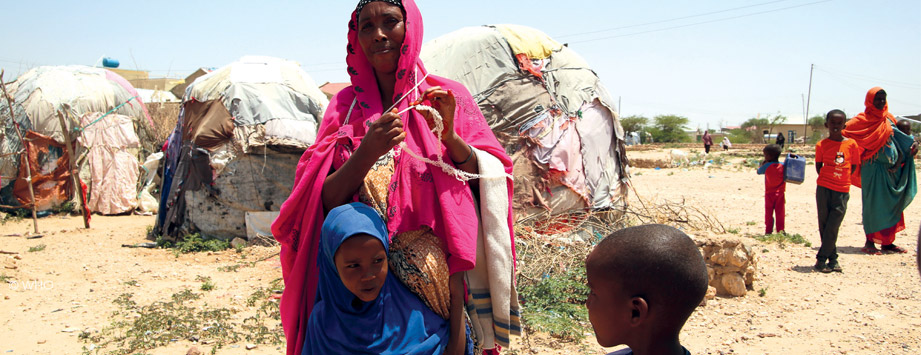Who we are
What we do
In collaboration with the Ministry of Health and Health Cluster partners, we work to ensure adequate emergency preparedness and response measures are in place primarily through the following actions:
Support the health system
We help strengthen the health system so it can adequately deal with public health emergencies.
To that end, we conduct vulnerability and public health risk analysis, develop national emergency preparedness, response and contingency plans, pre-position supplies, train the health workforce and lead the Health Cluster in Somalia to harmonize efforts in responding to health emergencies.
Prevent disease outbreaks and their public health effects
We conduct disease surveillance, monitor health threats, verify outbreak alerts and conduct field investigations to detect and contain outbreaks. We also implement mass immunization campaigns for cholera and other vaccines-preventable epidemic diseases. We respond to infectious disease outbreaks through field investigations, implementation of evidence-informed interventions and timely sharing of information to end any outbreak and minimize deaths.
Build core capacities for International Health Regulations (IHR) (2005)
We build core capacities required for IHR (2005) and support implementation of the national action plan for health security to fill gaps in IHR core capacities.





